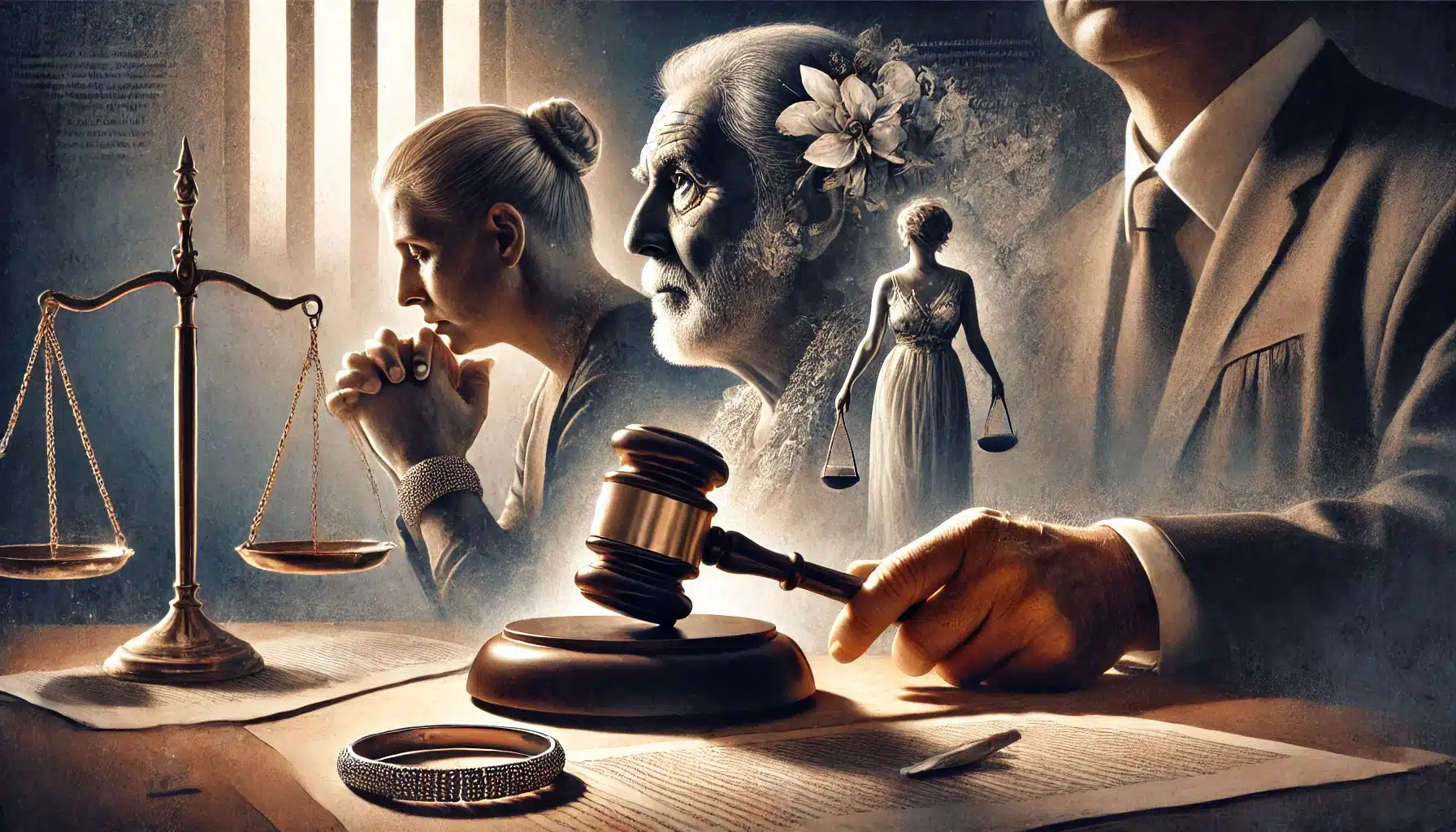The Supreme Court acquitted the parents-in-law in a dowry death case, ruling that the essential requirement of proving a demand for dowry in connection with the marriage was not established. The case revolved around the death of a woman due to burn injuries shortly after her marriage. The trial cour

AI that prepares briefs and compliance checklists
The Supreme Court recently acquitted the parents-in-law of a deceased woman in a dowry death case under Section 304-B IPC. The bench, comprising Justices J.B. Pardiwala and Manoj Misra, ruled that the prosecution had failed to prove the demand for dowry in connection with the marriage, an essential ingredient for convicting the accused for dowry death.
Background:
- The case pertained to the tragic death of a woman due to burn injuries within a short period after her marriage. The parents of the deceased accused her husband and in-laws of harassment and cruelty, alleging that her death was the result of a demand for dowry. The demand allegedly included a motorcycle and Rs. 50,000/- cash, which surfaced when the woman gave birth to a male child.
- Section 304-B IPC deals with dowry death, and under Section 113-B of the Evidence Act, a presumption of dowry death can be invoked if it is proven that the deceased was subjected to cruelty or harassment in connection with the demand for dowry “soon before her death”.
Trial Court and High Court Decisions:
- The trial court convicted the husband and parents-in-law under Sections 304-B and 498-A IPC, sentencing them to 10 years of imprisonment. The High Court upheld the conviction but reduced the sentence to 7 years. The husband of the deceased served his sentence and did not appeal. However, the parents-in-law appealed to the Supreme Court.
Arguments Before the Supreme Court:
- The appellants (parents-in-law) contended before the Supreme Court that their conviction could not be sustained as the prosecution had failed to prove the demand for dowry, which is a critical requirement under Section 304-B IPC.
- The appellants argued that the alleged demand for a motorcycle and Rs. 50,000/- cash was not made in connection with the marriage but as a celebration of the birth of a male child. The appellants submitted that the demand was unrelated to dowry and, therefore, the presumption of Section 113-B of the Evidence Act was wrongly invoked by the lower courts.
Supreme Court’s Observations:
- Upon examining the evidence and the testimonies of the witnesses, the bench observed that the lower courts had erred in invoking the presumption under Section 113-B of the Evidence Act. The Supreme Court stressed that unless the factum of dowry demand in connection with marriage is proven, it would be unjustifiable to convict the accused for dowry death, even if the other ingredients of the offence were fulfilled.
- The bench noted that to constitute a dowry death under Section 304-B IPC, the following elements must be satisfied:
- i. The death of a woman must have been caused by burns or bodily injury, or the death must have occurred under circumstances other than normal.
- ii. The death must occur within seven years of the marriage.
- iii. Cruelty or harassment by the husband or his relatives must have been inflicted on the woman soon before her death.
- iv. The cruelty or harassment must have been in connection with any demand for dowry.
Examination of Evidence:
- The Supreme Court carefully scrutinized the testimonies of PW-1, PW-2, and PW-3. It observed: “The testimonies of PW-1, PW-2, and PW-3 do not indicate that any demand for dowry was made by the accused-appellants either before or at the time of marriage of the deceased with their son.”
- The Court also noted that the demand for a motorcycle and cash appeared to be linked to a celebration following the birth of a male child, not in connection with the marriage. The Court observed: “There is no evidence that the accused-appellants directly demanded a motorcycle or cash from any of the witnesses.”
- The Court further highlighted a significant discrepancy in the behavior of the parents of the deceased. It expressed serious doubts about the credibility of their statements, noting that they did not take their daughter’s complaints seriously. The Court said: “Their reply was that they did not [pursue the matter] because they took it as a joke. We fail to understand how parents could treat their daughter’s multiple reports of apprehension to her life, on account of the demand being not met, as a joke.”
Final Judgment:
- The Supreme Court concluded that the essential element of dowry demand was not proven beyond reasonable doubt. The Court termed the parents’ allegations as a knee-jerk reaction to the tragic and unnatural death of their daughter, which was aimed at making a case for dowry death. The bench stated: “In our considered view, one of the essential ingredients of dowry death, namely, any demand for dowry, was not proved beyond reasonable doubt.”
- As a result, the Court held that the presumption under Section 113-B of the Evidence Act was unavailable to the prosecution, and the appellants were entitled to acquittal. The Court ruled: “…once all the necessary ingredients of dowry death have not been proved beyond reasonable doubt, the presumption under Section 113-B of the Evidence Act would not be available to the prosecution.”
- Accordingly, the Supreme Court allowed the appeal and set aside the conviction and sentence of the parents-in-law under Sections 304-B and 498-A IPC.
Supreme Court Appearance:
- For Appellant(s) Mr. A.P. Mohanty, AOR
- For Respondent(s) Mr. Akshat Kumar, AOR Mr. Ajay Bahuguna, Adv.
Click to read: SHOOR SINGH & ANR. VERSUS STATE OF UTTARAKHAND





